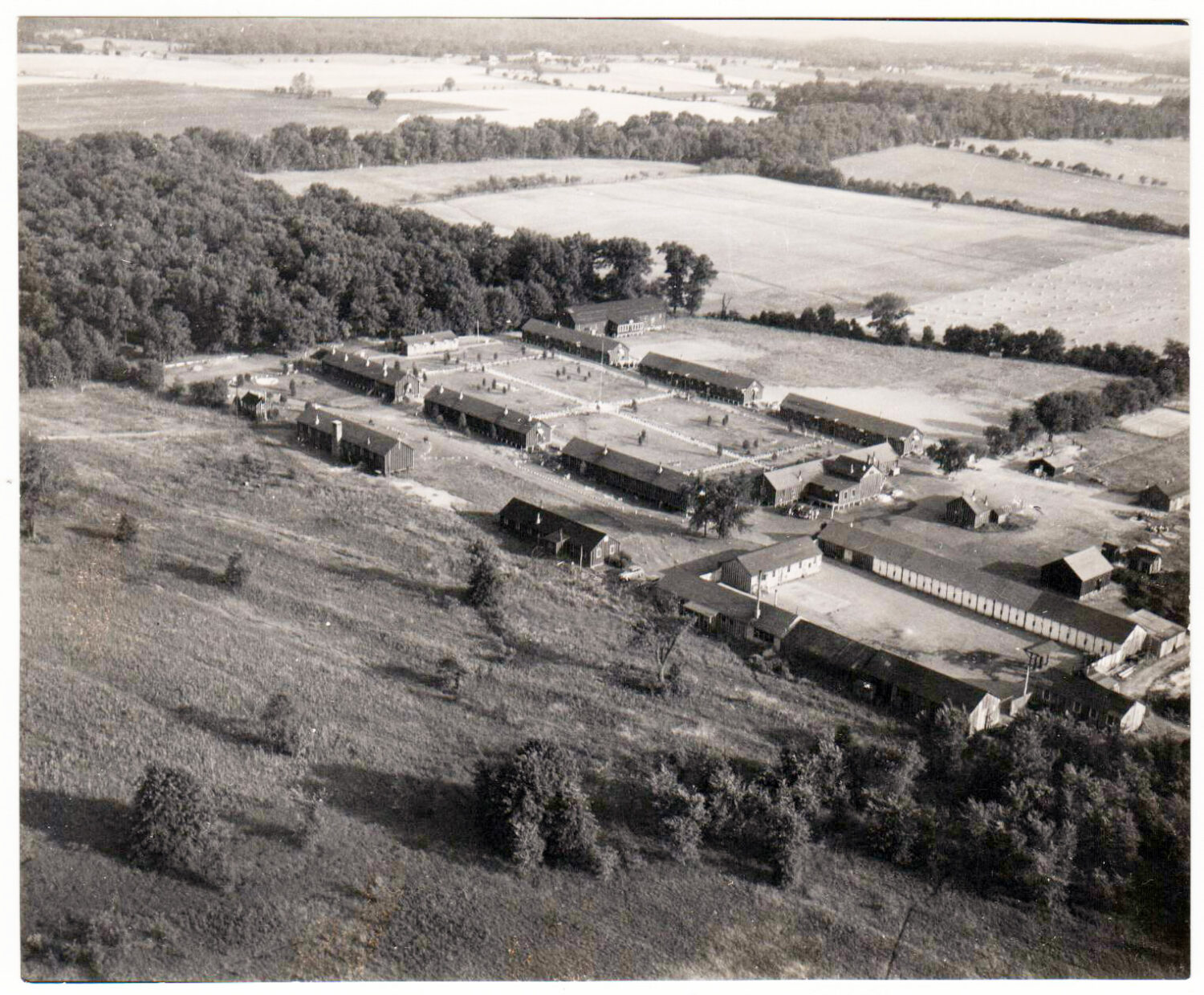German POW Falls for Orrtanna Girl
Richard D. L. Fulton
Based on ‘Nazis’ in Gettysburg: World War II Comes to a Civil War Battlefield by Richard D. L. Fulton, pending publication
Over the course of World War II, three POW camps (they were called PW camps then) were constructed on the Gettysburg National Battlefield Park, one initially on Emmitsburg Road (which held some 400 prisoners) and then two on West Confederate Avenue (with a combined population of 800 prisoners).
The reason the German prisoners were here was to compensate for the loss of young men who had been involved in the local agricultural and canning enterprises and who were drafted or enlisted in the military to help fight the war.
As for escaping, under international law, POW escape cannot be regarded as a crime. When caught they were simply returned to their compound. If it involved a group, they would be split up and sent to different compounds. Escapees could be charged if they committed a crime or crimes during their escape (for example, stealing a vehicle).
German POW Hans Herman Harloff, age 20, a member of German General Rommel’s Afrika Corps, had fallen in love with Pearl Crease of Orrtanna, who worked at the cannery where he was employed. While the cannery was not specified in ensuing reports, Crease’s 2007 obituary stated she “had worked for many years at Krouse Foods in Orrtanna.” Prisoners were not permitted to communicate with civilian co-workers, but Harloff and Crease managed to stay in touch through smuggling letters to one another.
Harloff, along with fellow prisoner Bernard Wagner, 24, a probable prisoner taken during the Normandy invasion, escaped January 4, 1946, from the POW compound that had been located on West Confederate Avenue at the site of a former Civilian Conservation Corps camp. The escapees had found an unguarded corner of the camp and slipped out from between strands of barbed wire.
When recaptured on January 7 near Zora, a little community outside of Carroll County Township, by Federal Bureau of Investigation (FBI) agents, Pennsylvania State Police, and military personnel, the duo reportedly told authorities they had escaped because they just wanted to see America, but Crease’s letters discovered among Harloff’s personal effects told a different story.
Much of the rest of the story comes from the subsequent March 4 testimony of FBI Agent Maurice Carroll that had been given on March 4, leading to arrest warrants being issued, and FBI Agent H.B. Fletcher on the March 11 hearing (before the federal grand jury in Scranton).
As the story unfolded, it was a much bigger case than an otherwise perfectly legal POW escape attempt. The Crease family was implicated in aiding and abetting the escape.
According to the FBI agents’ testimonies, Harloff and Wagner made their way to the Crease’s home, arriving there around 2:00 a.m., where the family provided the escapees with food, water, and rendered other assistance, directing the escaped prisoners to a vacant house where they could hide.
The family continued to provide the escapees with food and subsequently transported them to an unused barn on the property of Clayton Philips of Emmitsburg, where they were discovered after authorities received a “tip.” The duo was discovered hiding in a straw stack.
The agents testified that letters from Crease to Harloff found among his belongings led investigators to the Crease household and the subsequent arrest of Pearl Crease and her parents, Byron J. and Lovell Herring, with each member being released on $1,000 bail each, pending a trial.
On May 7, the three pled guilty to harboring a German prisoner of war. The parents were each given probationary sentences of a year and a day, and Pearl was given a probationary sentence of two years.
Normally, the charges would have been very severe. But note the date of the offense: January 1946. The war was already over. The Germans were technically no longer prisoners of war and were merely biding their time awaiting repatriation (being returned to their homelands).
The judge stated that, given that the war was over and the “good reputation borne by the Crease family” that “imprisonment would serve no good purpose.”
West Confederate Avenue (McMillan Woods) CCC camp before being converted to a POW camp.

Photo Courtesy of Gettysburg National Park Service

